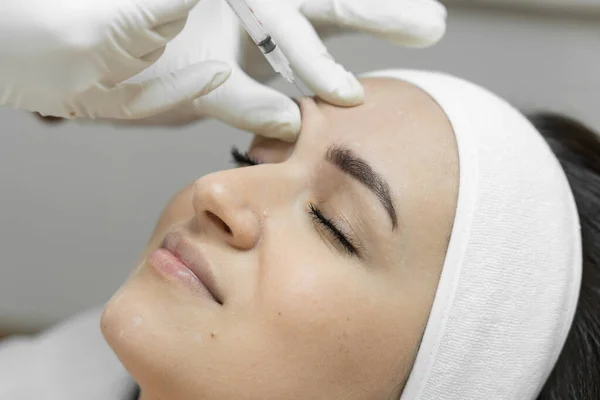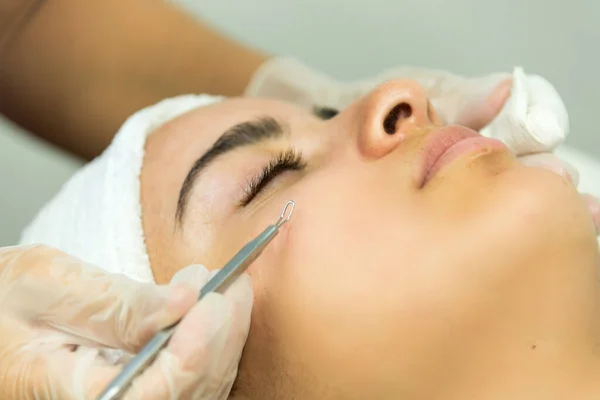Table of Contents Hide
- 1. What Are Dermal Fillers And How Do They Work?
- 2. Are Dermal Fillers Right For Me?
- 3. Who Should Administer Dermal Fillers?
- 4. What Type Of Dermal Filler Is Suitable For My Goals?
- 5. What Are The Potential Risks And Side Effects?
- 6. Is There A Downtime After Dermal Filler Treatment?
- 7. How Long Will The Results Last?
- 8. What Precautions Should I Take Before The Procedure?
- 9. Can I See Before-And-After Photos Of Previous Patients?
- 10. What Is The Cost Of Dermal Filler Treatment?
- 11. What Is The Maintenance Plan For Dermal Fillers?
- 12. What If I’m Dissatisfied With The Results?
- What Experts Say
In this article, we’ll explore the 12 essential questions you should ask before getting dermal fillers. In the pursuit of youthful and radiant skin, dermal fillers have emerged as a popular option for many seeking a non-surgical approach to facial rejuvenation.
However, before diving into the world of dermal fillers, it’s crucial to arm yourself with knowledge and pose pertinent questions to ensure a safe and satisfactory experience.
1. What Are Dermal Fillers And How Do They Work?
To embark on this aesthetic journey, a fundamental understanding of dermal fillers is paramount. Dermal fillers are injectable substances designed to add volume, smooth lines, and restore a youthful contour to the face. Comprising various materials, including hyaluronic acid, calcium hydroxylapatite, and poly-L-lactic acid, these fillers aim to enhance facial features and combat the signs of aging.
2. Are Dermal Fillers Right For Me?
Individual suitability for dermal fillers varies. Consultation with a qualified practitioner is essential to evaluate your unique facial anatomy, skin condition, and desired outcomes. Factors such as allergies, medical history, and lifestyle play a role in determining whether dermal fillers align with your cosmetic goals.
3. Who Should Administer Dermal Fillers?
Choosing a skilled and licensed professional is critical for a safe and effective dermal filler experience. Dermatologists, plastic surgeons, and certified injectors possess the expertise necessary to navigate the intricacies of facial anatomy and administer fillers with precision.

4. What Type Of Dermal Filler Is Suitable For My Goals?
Dermal fillers come in various formulations, each catering to specific aesthetic goals. Whether you aim to plump lips, soften facial creases, or restore volume to hollow areas, understanding the diverse options available allows you to make an informed decision aligned with your desired outcomes.
5. What Are The Potential Risks And Side Effects?
While dermal fillers are generally safe, being aware of potential risks and side effects is crucial. Bruising, swelling, redness, and asymmetry are common, but serious complications such as infection and vascular compromise are rare yet possible. Discussing these possibilities with your practitioner ensures informed consent.
6. Is There A Downtime After Dermal Filler Treatment?
Understanding the post-treatment phase is vital for planning and managing expectations. While dermal filler procedures are minimally invasive, some individuals may experience mild swelling or bruising, necessitating a brief downtime. Planning accordingly ensures a seamless transition back into your routine.
7. How Long Will The Results Last?
Dermal filler longevity varies based on the type of filler used and individual factors. Generally, results can last anywhere from six months to two years. Discussing the anticipated duration of results allows you to plan for maintenance treatments and budget accordingly.
8. What Precautions Should I Take Before The Procedure?
Preparing for a dermal filler procedure involves more than just scheduling an appointment. Avoiding certain medications, supplements, and substances that can increase the risk of bruising is crucial. Additionally, communicating openly about your medical history and any ongoing health concerns ensures a comprehensive and tailored approach to your treatment.
9. Can I See Before-And-After Photos Of Previous Patients?
Reviewing before-and-after photos of previous patients treated by your chosen practitioner provides insight into their skill and aesthetic sensibilities. This visual documentation helps you visualize potential outcomes and ensures your expectations align with the practitioner’s capabilities.
10. What Is The Cost Of Dermal Filler Treatment?
Financial considerations are integral to any cosmetic procedure. Understanding the cost of dermal filler treatment, including the price per syringe and potential additional fees, allows you to budget effectively. While cost is a factor, prioritizing the expertise and reputation of your chosen practitioner is paramount.
11. What Is The Maintenance Plan For Dermal Fillers?
Maintaining optimal results involves a strategic approach to touch-up treatments. Inquiring about a maintenance plan with your practitioner ensures a proactive strategy to preserve the effects of dermal fillers over time. Regular follow-up appointments contribute to sustained aesthetic benefits.
12. What If I’m Dissatisfied With The Results?
Open communication with your practitioner is key, especially in the rare instance of dissatisfaction with results. Understanding the protocol for addressing concerns, whether through additional treatment or adjustments, provides assurance that your practitioner is committed to your satisfaction.
In conclusion, embarking on the journey of dermal fillers necessitates a thoughtful and informed approach. By posing these 12 essential questions, you empower yourself to make educated decisions, ensuring a safe and satisfactory experience in your quest for facial rejuvenation. Always prioritize thorough research, qualified practitioners, and transparent communication to achieve the best possible outcomes in your aesthetic journey.
What Experts Say
Dr. Robert Bernstein, a board-certified dermatologist in New York City:
- What kind of filler do you recommend for the areas being treated and why? There are many different types of fillers available, and each has its own strengths and weaknesses. The best type of filler for you will depend on the area being treated, your desired results, and your individual skin type.
- What are your qualifications to perform this procedure? Dermal fillers are a medical procedure, so it is important to make sure that your doctor is qualified to perform them. Ask about their training, experience, and board certification.
- What are the risks and side effects of this procedure? All medical procedures have some risks, and dermal fillers are no exception. Make sure you understand the potential risks and side effects before you decide to proceed.
- What can I expect during and after the procedure? The procedure itself is usually quick and relatively painless. However, there may be some bruising, swelling, and tenderness afterwards. Ask your doctor about what to expect and how to minimize the side effects.
- How long will the results last? The results of dermal fillers are not permanent, but they can typically last for 6 to 12 months. Ask your doctor about the specific longevity of the filler they are recommending.
- What is the cost of the procedure? The cost of dermal fillers will vary depending on the number of syringes used, the type of filler used, and your doctor’s experience. Ask your doctor for a quote before you proceed.
David Colbert (Dr), a board-certified dermatologist in New York City:
- What are your goals for this treatment? It is important to have realistic expectations about what dermal fillers can achieve. Be clear with your doctor about what you are hoping to achieve with treatment.
- What are your concerns about this treatment? Are you worried about pain, downtime, or the results? Discuss your concerns with your doctor so that they can address them.
- What are your lifestyle considerations? Do you have any upcoming events or activities that you need to consider? Your doctor will need to know this information so that they can schedule your treatment accordingly.
- What is your budget? Dermal fillers can be a significant investment, so it is important to be upfront with your doctor about your budget.
- What are your expectations for the recovery process? Dermal fillers typically have minimal downtime, but there may be some bruising, swelling, and tenderness. Be prepared for this and make sure you have the time to recover properly.
Dr. Julius Few, a board-certified plastic surgeon in New York City:
- What is your medical history? Make sure your doctor is aware of any medical conditions you have, as well as any medications you are taking.
- Have you had any previous cosmetic procedures? If you have had any previous cosmetic procedures, tell your doctor about them. This will help them to plan your treatment accordingly.
- Are you allergic to anything? Make sure your doctor knows about any allergies you have, including allergies to medications or latex.
- Do you smoke or use any recreational drugs? Smoking and recreational drug use can increase the risk of complications from dermal fillers. Be honest with your doctor about your lifestyle habits.
- Are you pregnant or breastfeeding? Dermal fillers are not recommended for pregnant or breastfeeding women.
Also Read: What To Know Before And After Blepharoplasty (Eyelid) Surgery: Is It Worth It?
Note: This article is written based on scientific evidence found by the 247newsaroundtheworld.com team. Sources are duly referenced with keywords hyperlinked to source websites and are clickable for reference.
Last Updated on November 27, 2023 by 247 News Around The World







